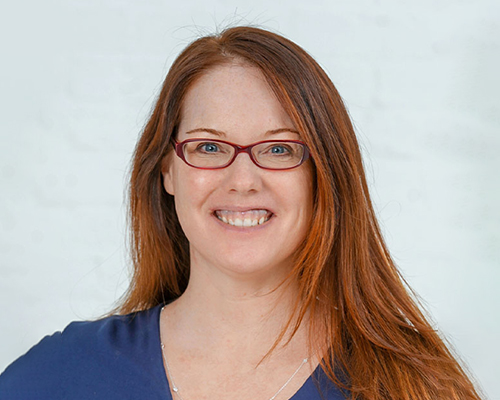Below are some of the leadership development courses we offer for your emerging leaders to your most senior executives. We can customize any course or program depending on the needs of your organization. Choose one course or offer a series of training and coaching sessions over the course of a year. We work with you and your team to provide an interactive learning experience which builds confidence and the relationships of the participating leaders, to the benefit of the organization.

Emotional Intelligence 2.0
Emotional intelligence has been shown to be a greater predictor of career success than innate intelligence. Defined as the ability to be aware of one’s emotions and those of others and regulate emotions to positive outcomes in thinking, action and relationships, emotional intelligence is not an innate talent, but something that can be learned.
- Determine emotional intelligence strengths and gaps through self-assessment
- Increase self-awareness by understanding emotions

Leadership Development Principles & Best Practices
Leading organizations, teams and individuals in today’s workplace is becoming ever more challenging with the changes in worker needs and the speed at which business is moving. While some leadership principles are timeless, effective leaders today are employing new skills to move their organizations forward. In this introductory leadership session, participants will walk away with how to:
- Define the principles of effective leadership
- Understand different leadership styles
- Define their own leadership strengths and gaps through self-assessment
Respect in the Workplace – Preventing Harassment & Discrimination
Organizations and all members of the team own the workplace culture. Workplace discrimination can infect every aspect of an organization, such as recruitment, retention, engagement and productivity. Further, discrimination impacts teamwork, demoralizes individuals and can create a toxic working environment. In this workshop participants will:
- Develop a greater understanding of the interaction between discrimination and the role of unconscious bias, differences amongst people and poor communications
- Become familiar with the legal framework that governs workplace harassment and discrimination at both the Federal and State level as well as a review of particular employer policies and standards
- Receive particularized instruction on the issue of sexual harassment, including identifying examples of inappropriate behavior, reporting mechanisms and bystander strategies
Navigating Conflict – Engaging in Difficult Conversations in the Workplace
As a manager, you sometimes need to have conversations with people that you’d rather not. Whether it is an employee with a difficult personality, dealing with performance concerns or patterns like chronic lateness, these conversations can be challenging and may stir up emotions. A good leader knows that these conversations are necessary in the workplace and need to be handled in the right way. This practical workshop will help you plan and manage these conversations and will provide an opportunity to practice using techniques to build your confidence. Participants will walk away with how to:
- Manage difficult behaviors to achieve a positive outcome
- Plan and prepare effectively prior to delivering feedback
- Learn how to deal with high emotions and frame conversations for the best outcomes
Developing Employee Performance through Coaching
Being a leader means getting things done through others. The best leaders know how to manage the performance of their employees in a way that is constructive and supportive. That means creating and communicating objectives and development plans, explaining the “why”, having frequent two-way discussions, coaching actively, and involving the employee at every step. Participants will walk away with how to:
- Understand the true impact of performance management – the benefits of coaching and feedback
- Improve coaching to reinforce and redirect

Decision Making Models and Building Team Consensus
One of the most important skills for any successful team is making decisions together. There are several decision-making models from which to choose. Taking an intentional approach to decision making can prevent conflict, improve efficiency, productivity, and help teams work together more cohesively. In this activity-based workshop, participants will:
- Practice finding common ground
- Practice constructive disagreement
- Come to an agreement that everyone can live with and support
Unconscious Bias, Diversity, & Inclusion
Unconscious bias is everywhere, impacting our day-to-day choices, actions and our relationships. The impact of these biases can become particularly pronounced when faced with the diversity amongst individuals. The workplace is not immune from its impacts – from recruitment, compensation, performance management, training and development, and retention decisions, our individual biases and those of the organization as a whole, impact our decision-making processes, often to the detriment of the workplace and success of the organization. Developing an awareness of how these biases permeate our lives is key to moving forward with strategies to minimize their impact. In this workshop participants will:
- Develop a working definition of unconscious bias and a greater ability to identify the areas in which it is prevalent
- Explore how to be more intentional about our thinking and habits to challenge our own biases
Balancing Demands of a Multi-generational Workforce
Intergenerational differences are evidence our working culture is in transition, with each generation having unique needs and perspectives and placing more demands on leaders. The differences between the five generations found in today’s workplace can be identified by factors such as norms, beliefs, values, and the historical influences that shaped each generation. In this session, participants will walk away with how to:
- Identify the different generations in the workplace
- Leverage market forces in recruitment and retention as it relates to different generations
Connecting the Dots to Organizational Purpose
Individuals want to be connected to something that is larger than themselves. Applicants and employees want to know how they help make a difference for the organization. Leaders are key to explaining the “why” and helping the team and individuals to understand the bigger picture, organizational strategy, and path to success.
- Explore how the organization currently connects the dots to organizational purpose
- Consider ways to be intentional about telling the story and tying organizational purpose back to daily activities and desired

Behavioral Interviewing
Behavioral interviewing is a style of interviewing job candidates that poses question related to past experiences and behaviors as a means of predicting future success and behavior. This type of interviewing is considered the most effective interviewing technique and is proven to be much more effective than traditional interviewing methods.
Developing a Meaningful Compensation Philosophy
Why is an intentional approach to compensation important? Labor costs are typically an organization’s largest expense (employee pay and benefits). Clear communication about an organization’s compensation practices and philosophy can improve morale, engagement, and productivity for current employees. Transparency about pay practices is also important for an organization looking to attract the right talent. Potential applicants are looking to understand the full picture of what an employer offers and whether it is competitive to other employers. Bring together your senior leadership team for this workshop on developing a compensation philosophy that resonates.
Coaching and Resilient Leadership
As we move beyond the COVID-19 pandemic, leaders report feeling overwhelmed, burnt out, and unsure about how to navigate the next phase and the changing nature of work. In this session, we will explore how leveraging emotional intelligence, building resilience, and recognizing the signs of unproductive stress will help you personally and professionally to lead calmly and effectively during times of crisis, change, and uncertainty. Participants will:
- Consider the impacts of stress in the workplace.
- Understand the role of stress as it relates to high performance.
- Consider the Fight, Flight, Freeze responses.
- Communicate more effectively as a leader.
- Understand principles of resilient leadership.
Developing High Functioning Senior Level Leadership Teams
It is imperative that Senior Leadership Teams (SLT) are connected, on the same page, and communicate effectively to lead the organization. This team is typically made up of the seniormost leaders and decision makers in the organization. Members of the SLT often have little time to spare. This team is much more than just a collection of senior leaders, it is a microcosm of the organization. Participants in this workshop will:
• Articulate the shared purpose and strategy of the SLT
• Review effective SLT leadership competencies
• Identify challenges, blind spots

Karin Tierney
VP – HR Consulting Services
Karin joined Hickok & Boardman HR Intelligence in September of 2017. Karin brings 20+ years of experience in Human Resources as a specialist, generalist and strategic business partner, having worked in higher education, state government, and manufacturing. Through organizational design and workforce planning, Karin helps clients to implement initiatives to recruit, develop, engage and retain the best talent.
